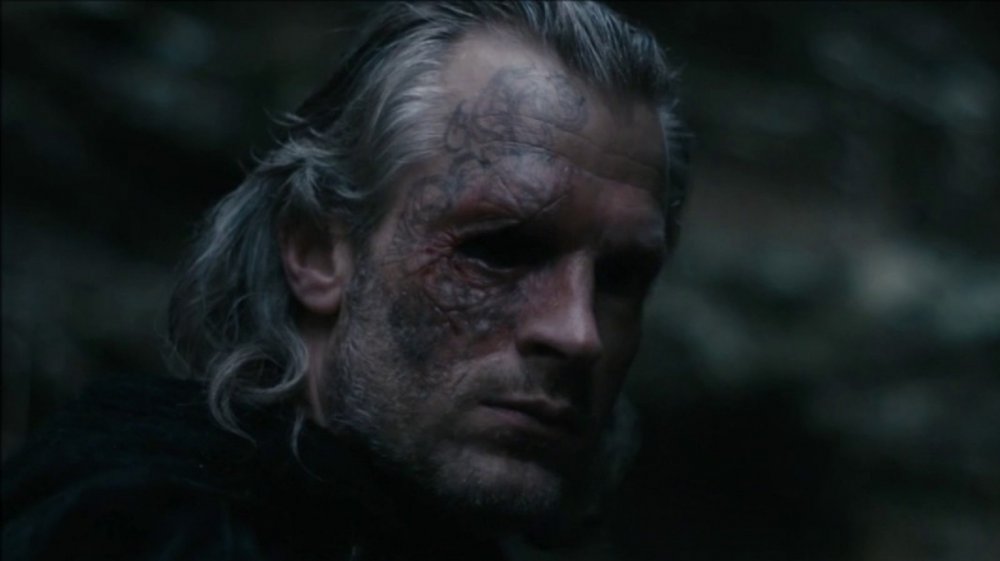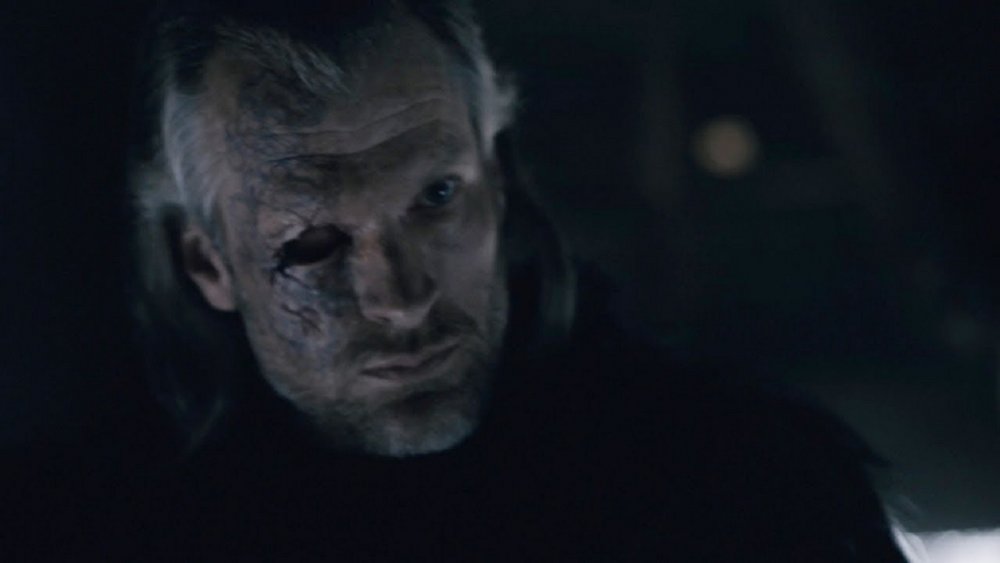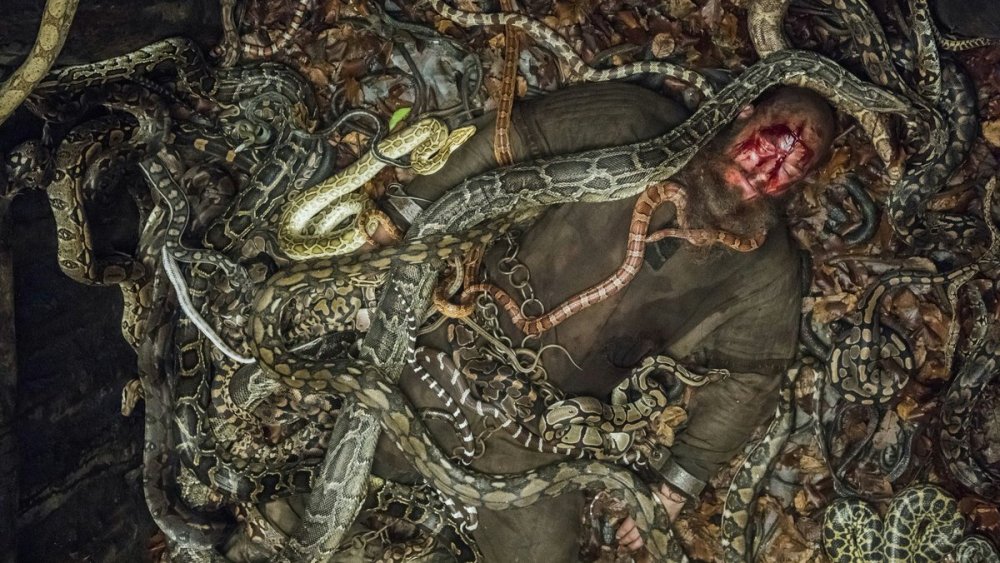The Question That Vikings Fans Have About Odin
Like the people they were based on, Vikings isn't known for its playful side. Unless you count rape, pillaging, torture, human sacrifice, constant war and general violence as a fun time. So, those moments when various Norse gods pop up or get a mention are some of the more whimsical of the show — even though they tend to also revolve around a character's death.
The Vikings TV show is based on history — loosely, at times — and its depictions of the gods draw on real Ancient Norse mythology. One of the series' favorite deities is Odin (André Eriksen). If you know the true meaning of ravens on Vikings, you'll know that these cunning birds sometimes serve as his messengers, or represent the god himself. Odin also appears in the show as a one-eyed older man. Notably, when Ragnar Lothbrok (Travis Fimmel) dies, Odin visits his sons to give them a wordless hint that their father is dead.
However, some Vikings fans have questions — about why Odin would bother making a personal death tour for someone who didn't even believe that he existed. And furthermore, does his appearance tell us something about Ragnar?
First of all, who is Odin?
Odin is a complicated figure, even by Ancient Norse standards. He's usually presented as a god of war, specifically of bloodthirsty, take-no-prisoners, fighting-for-fighting's-sake kinds of war. But he was also a god of poetry, and associated with magic and shamanism (among other things.)
Odin is the king of the Aesir gods, as explained by NorseMythology.org — one of two Ancient Norse tribes of deities — who live in Asgard, one of the Nine Realms (if you thought the untold truth of Thor in the MCU was wild, it has nothing on Ancient Norse mythology). But he has a tendency to take off for Midgard (the human realm) in pursuit of the greatest warriors. You see, Odin has a very specific quest. He wants to fill the Hall of Valhalla with the most skilled warriors, so they can fight on his side in the prophesied Battle of Ragnarok — a battle he and his warriors (known as einherjar) are prophesied to lose.
Getting into Valhalla was a big deal to Vikings: being singled out by Odin marked you as an elite male warrior. The only drawback was that you had to be dead, since Valhalla is the most prestigious of the many possible afterlife destinations in Norse mythology. It was believed that after a battle, Odin and Freya — the goddess in charge of the afterlife realm known as Folkvang — scoured the battlefield, with Odin getting to take half of the slain male warriors to Valhalla, and Freya taking the remaining ones to Folkvang. In Valhalla, the warriors spent all day fighting each other to the death — again — and all night feasting. Their wounds would be healed by the following morning, so they could do the whole thing on repeat. This is how they prepared for Ragnarok.
Did Ragnar believe in Odin when he died?
In the early seasons of Vikings, Odin was very important to Ragnar. As the god of sovereignty, Odin was believed to be an ancestor of many ruling families, including Ragnar's. However, throughout the show, Ragnar becomes interested in Christianity, and even agrees to be baptized — although it turns out this is actually a battle tactic. It's exactly that kind of commitment to the underhanded slaughter of one's enemies that would land a man a spot in Valhalla. But before he dies, Ragnar tells the Seer that the gods have no control over his destiny. Which has Vikings fans on Reddit asking: Why does Odin bother to inform his sons of his death?
It depends, partially, on whether you believe Ragnar's rousing final speech in which he claims to be going to Valhalla. Does that mean that he really was Team Odin all along, in which case it makes sense to see Odin honoring this exceptional warrior? Some fans think so. Or is he, as other Redditors suggest, merely hedging his bets? One Reddit user, HahnsSubee, proposed that Ragnar might have been just "maintaining his rep." Others, like kaitybubbly, think that Odin's appearance has more to do with Ragnar's children: "Because even though Ragnar died an athiest, his sons believe and worship the old gods."
For Fimmel's part, he saw it as yet another tactic. He told Entertainment Weekly, "He's a definite atheist." And as Reddit user jimmy_ricard points out, Ragnar's spirituality might not matter to Odin: "The norse gods are not concerned with your beliefs. Odin's goal is to gather the greatest warriors."
As with everything Odin-related, the truth is complicated.


